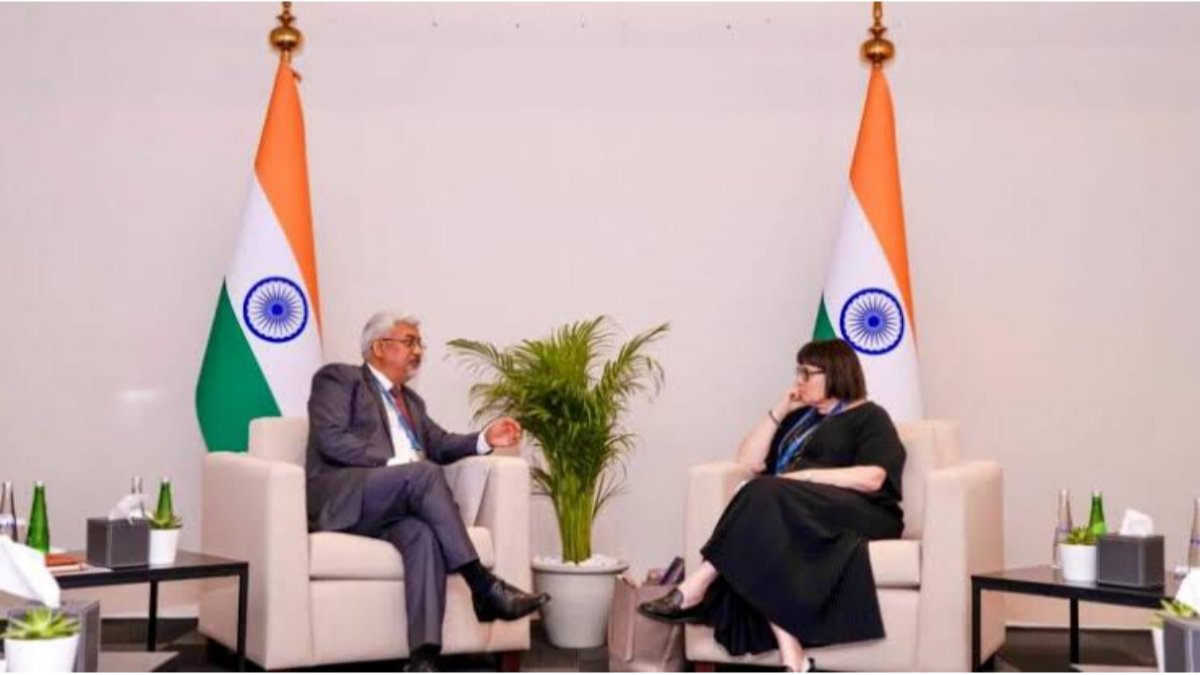Commerce Secretary: Developed Nations Employing Trade-Distorting Subsidies.
India Cautions Against Inclusion of ‘Non-Trade Issues’ in WTO Agenda. During the second session on trade and inclusion at the 13th ministerial conference of the World Trade Organization (WTO) in Abu Dhabi on Monday, Commerce Secretary Sunil Barthwal warned that efforts by the developed world to incorporate “non-trade issues” into the WTO agenda could result in the “fragmentation” of the multilateral trading system. “Commerce Secretary Highlights Concerns Over ‘Non-Trade Issues’ in WTO Talks” Speaking at the 13th ministerial conference of the World Trade Organization (WTO) in Abu Dhabi, Commerce Secretary Sunil Barthwal expressed apprehension regarding the proposed inclusion of “non-trade issues” in the WTO agenda by the developed world. He cautioned that such efforts might lead to the “fragmentation” of the multilateral trading system.
Barthwal emphasized that under the guise of addressing non-trade issues, numerous developed nations were contemplating the implementation of trade-distorting subsidies and had established non-trade barriers. He also voiced apprehensions regarding this “unilateralism” and its adverse repercussions on the trade interests of developing nations. Barthwal underscored the importance of maintaining a “focused” approach towards facilitating trade.
“Developing countries seek appropriate policy space to find solutions to their concerns, some of which have been unaddressed for a long time. They require flexibility in the existing WTO agreements to overcome the constraints faced by them in their industrialization,” the secretary noted.
Earlier, during a session on ‘Sustainable development and policy space of industrialization,’ the official expressed serious concerns regarding the increasing use of protectionist and unilateral trade measures. He highlighted that these measures are often justified in the name of environmental protection.
The European Union has implemented the Carbon Border Adjustment Mechanism (CBAM), which imposes taxes on high carbon emissions during the production stage of imported products, marking the first large-scale unilateral trade impact on environmental regulation. Other developed countries are also considering similar mechanisms, which could result in high tariff barriers for imports from developing countries. Any adverse impact on exports from developing countries to these markets would setback their industrialization efforts.
In his address at the conference’s opening session via video link, Commerce and Industry Minister Piyush Goyal emphasized that the development agenda remains incomplete without a permanent solution on public stock-holding for food security purposes. This issue is directly linked to achieving the Sustainable Development Goal of zero hunger by 2030.
“Public stock-holding remains an unaccomplished agenda on which we have to deliver in MC13,” the minister said in his recorded address, which was played at the session. A permanent solution will enable the government to carry out minimum support price (MSP) operations, hold stocks, and run the public distribution system. India currently operates under a ‘permanent peace clause,’ which exempts MSP and PDS operations from legal challenges at the WTO.
During the opening session, several countries, including the UK, the US, and the European Union, participated through pre-recorded messages.

